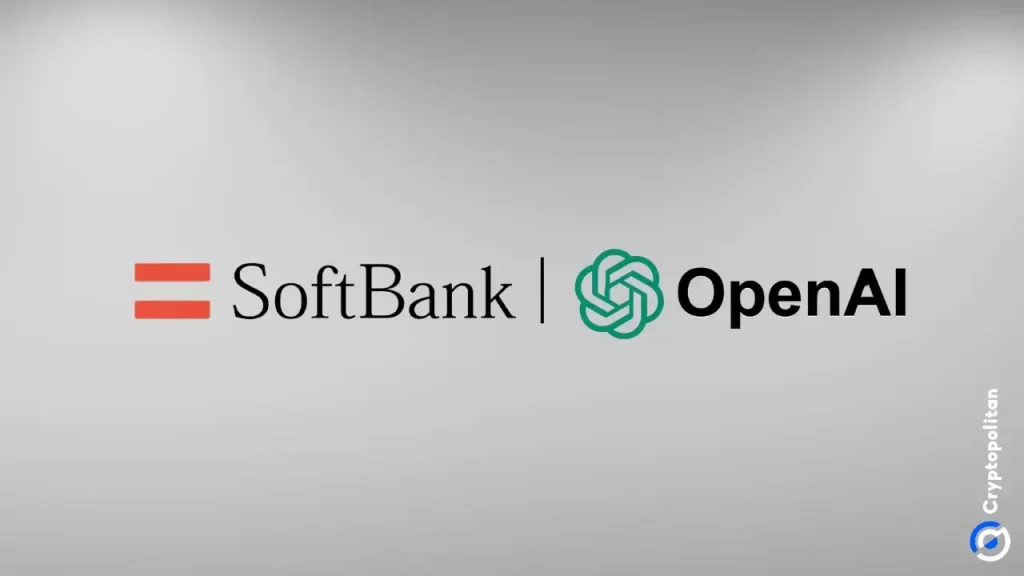SoftBank OpenAI Investment marks a transformative moment in the realm of artificial intelligence, as CEO Masayoshi Son boldly commits approximately $33.2 billion to this groundbreaking company. At a recent shareholders’ meeting, Son expressed his unwavering belief that OpenAI is poised to become the world’s most valuable company and will eventually go public. This investment, part of a larger vision involving the development of AI superintelligence, reflects SoftBank’s strategy to lead in the tech landscape. Despite initially losing the opportunity to partner with OpenAI to Microsoft, Son remains steadfast in his ambition to cultivate and invest in this innovative AI frontier. With significant plans underway, including vast industrial advancements, SoftBank aims to cement its influence as one of the leaders in the AI sector, particularly through its collaboration with OpenAI and other related projects.
The substantial commitment from SoftBank towards OpenAI represents a pivotal shift in technology investment, emphasizing the growing importance of artificial intelligence. Masayoshi Son’s vision not only outlines future financial involvements but also indicates a deeper engagement with next-generation AI solutions. As SoftBank navigates the complexities of their Microsoft OpenAI partnership and potential restructuring, the focus on establishing a dominant role in AI superintelligence becomes increasingly crucial. This foresight into a public incarnation of OpenAI not only hints at lucrative opportunities but also reinforces SoftBank’s reputation for making daring investment choices in the tech realm. Ultimately, the interplay of these corporate strategies may redefine how the industry approaches AI development and commercialization.
SoftBank’s Major Investment in OpenAI
SoftBank CEO Masayoshi Son’s ardent support for OpenAI is underscored by his plan to invest a staggering 4.8 trillion Japanese yen, roughly equivalent to $33.2 billion. This bold financial commitment reflects Son’s belief in OpenAI’s potential, not only to innovate but also to ultimately enhance its public valuation, positioning itself as a possible front-runner in the tech industry. By committing such vast resources, SoftBank aims to stake a significant claim in the evolving landscape of artificial intelligence.
Son articulated at a recent shareholders’ meeting that he sees OpenAI as on track to become the most valuable company in the world. His vision speaks to a broader trend in tech where massive investments in emerging AI technologies can yield transformative societal impacts. As SoftBank also explores collaborations, such as the extensive $500 billion Stargate project, their strategic movements signify a relentless pursuit of leadership in the AI sphere.
The Microsoft OpenAI Partnership and its Implications
The partnership between Microsoft and OpenAI has been a pivotal moment in the tech landscape, positioning Microsoft as the exclusive provider of OpenAI’s cloud computing needs. However, recent shifts have challenged this collaboration, with reports indicating that Microsoft’s exclusive status may be waning. This evolving dynamic poses significant questions about the future direction of both companies. The suggested friction stemming from Microsoft’s resistance to OpenAI’s restructuring plan further complicates their alliance and creates openings for other investors like SoftBank.
SoftBank’s Masayoshi Son has openly stated that his investment instincts might have led to a different outcome had he been partnered with OpenAI from the beginning. Instead, Son opted to support the AI venture through significant funding while Microsoft secured the initial partnership at the cost of OpenAI’s flexibility. The implications of these developments hint at a potential reshaping of AI market power amongst tech giants, wherein SoftBank’s aggressive investment strategy could position it as a serious competitor against Microsoft in the AI sector.
Son’s Vision for Artificial Superintelligence
Masayoshi Son’s aspiration to lead the field of artificial superintelligence (ASI) highlights his long-term strategy for SoftBank. He envisions a future where ASI, characterized by intelligence orders of magnitude greater than human capabilities, becomes a reality. By backing OpenAI, Son is betting on the company’s potential to pioneer breakthroughs in this transformative field, presenting SoftBank as a key player in a future driven by superintelligent systems.
To bolster this vision, Son has indicated that SoftBank aims to become the largest platform provider in the coming AI era. This ambition extends beyond OpenAI, intertwining with the acquisition of Arm Holdings to develop significant tech infrastructures essential for ASI development. His approach of synergizing SoftBank’s investments across different AI fronts underscores a comprehensive strategy, aspiring to position SoftBank at the core of ASI advancements and applications.
The Risks and Rewards of Investing in AI
Investing in unlisted and currently unprofitable companies like OpenAI involves significant risks; however, the potential rewards can be monumental. Son himself emphasized the need for bravery in making such investments, as many traditional investors shy away from ventures that lack immediate profitability. Yet, the possibility of backing a company that could become a juggernaut in AI and technology could yield unparalleled financial returns in the long term.
SoftBank’s approach uniquely illustrates a calculated risk in the face of uncertainty. By committing $33.2 billion to OpenAI, along with a willingness to adjust their stake based on the company’s performance, SoftBank aims to align with a frontrunner in transforming industries through AI. As the landscape evolves, the ability to recognize and act on potential breakthroughs is crucial for investors looking to capitalize on the rapid advancements in technology.
OpenAI’s Path to an Initial Public Offering
The prospect of OpenAI becoming a public company has gained traction, especially with Masayoshi Son’s belief that this transition is inevitable. Given the current state of the market and the increasing competition within the AI sector, going public could provide OpenAI with both the capital and market visibility required to fuel its ambitious projects. This would not only affirm Son’s confidence in the company but could also transform it into one of the most valuable entities globally when it toes the public waters.
However, the path to an initial public offering is riddled with challenges. OpenAI’s operational status as an unprofitable, unlisted entity presents hurdles in reassuring investors of its market viability. SoftBank’s anticipated shift in investment strategies may directly impact OpenAI’s readiness for public life, should it fail to restructure into a more profit-oriented framework by the set deadline. Market strategies and investor confidence will likely play significant roles in OpenAI’s IPO journey.
The Competitive Landscape of AI Investments
The field of artificial intelligence investment is increasingly competitive, with major players like Microsoft and SoftBank actively investing resources into innovative AI companies. The size and scale of investments highlight the urgency and significance companies place on securing a premier position in what many predict to be a revolutionary segment of technology. For instance, SoftBank’s planned infusion of $33.2 billion into OpenAI and accountability to its stakeholders illustrates an aggressive stance on securing AI’s future.
As organizations recognize the potential of AI superintelligence to redefine industries, the competition among investors is bound to escalate. Companies such as SoftBank, which are willing to take calculated risks and invest heavily in innovative projects, are likely to emerge as leaders in shaping AI’s evolution. This dynamic creates a thriving environment for innovation but also necessitates strategic foresight to navigate the complex relationships between firms.
Future Collaborations in the AI Sector
Looking forward, collaborative efforts in the AI sector will be crucial for realizing the full potential of technologies being developed by firms like OpenAI. Son’s vision emphasizes the importance of cooperation between SoftBank and advanced AI companies to drive innovation and market growth. Collaborative projects can enhance resource sharing and idea exchanges, fostering breakthroughs that may have been unattainable if pursued solely by individual firms.
The interdependence of stakeholders in the AI landscape suggests a need for new frameworks of partnerships that blur the lines between competitors and collaborators. Therefore, as firms like Microsoft and SoftBank refine their strategies concerning OpenAI and others, a new phase of cooperation could emerge. This could potentially lead to the development of shared platforms designed to accelerate the deployment of artificial superintelligence and related technologies.
The Role of Government Regulation in AI Development
As investments in companies like OpenAI surge, the role of government regulation in the AI landscape becomes increasingly critical. Policymakers must strike a balance between fostering innovation and safeguarding public interests, especially concerning the ethical implications of artificial superintelligence. Therefore, the dialogue surrounding AI regulation is evolving and could influence how investments flow and what structures firms like SoftBank and Microsoft will adopt moving forward.
Regulatory frameworks could dictate operational boundaries for AI companies, impacting areas ranging from funding availability, the transparency of AI development processes, and the management of public concerns regarding AI. For SoftBank and its extensive investments in OpenAI, being proactive in engaging with regulatory discussions might not only secure its interests but also position it competitively as the industry adapts to evolving legal landscapes.
Long-Term Outlook for AI and Investment Strategies
The long-term outlook for AI, particularly with the involvement of major players like SoftBank and Microsoft, suggests a sector poised for exponential growth. As organizations invest heavily in AI technologies, their strategies will need to emphasize scalability, collaboration, and innovation to stay ahead in an increasingly saturated market. Son’s commitment to a prosperous future for OpenAI is indicative of a broader trend among investors to align with transformative technologies.
Investors will need to adopt flexible strategies that allow adaptation to rapid technological advancements and changing market needs. This might involve diversifying their investments to include a mix of established firms and emergent AI ventures. With insights from industry leaders like Masayoshi Son and ongoing developments such as OpenAI’s trajectory toward an IPO, the focus will remain on identifying opportunities that promise high returns in the ever-competitive AI market.
Frequently Asked Questions
What is SoftBank’s planned investment in OpenAI?
SoftBank, led by CEO Masayoshi Son, has announced a planned investment of approximately 4.8 trillion Japanese yen, which is about $33.2 billion, in OpenAI. This substantial investment reflects SoftBank’s commitment to artificial intelligence and its belief in OpenAI’s future potential.
Why does Masayoshi Son believe OpenAI will go public?
Masayoshi Son believes that OpenAI will eventually go public and become the most valuable company in the world. His confidence stems from the advancements in artificial intelligence, particularly the pursuit of AI superintelligence, which showcases the significant growth potential of OpenAI.
What are the implications of SoftBank’s investment in OpenAI?
SoftBank’s investment in OpenAI reinforces its strategy to lead in AI technology. With plans amounting to $33.2 billion, SoftBank aims to be a major contributor to the development of artificial superintelligence, positioning itself as a vital player in the AI industry.
How has SoftBank’s relationship with Microsoft concerning OpenAI evolved?
SoftBank’s relationship with Microsoft regarding OpenAI has seen shifts in exclusivity; however, Microsoft initially secured the exclusive cloud provider status for OpenAI. Recently, reports indicated that this exclusive arrangement has strained, pointing toward changing dynamics within their partnership as SoftBank positions itself for a potential significant role.
What future plans does SoftBank have for AI investments?
In addition to its massive planned investment in OpenAI, SoftBank is considering establishing a $1 trillion industrial complex in the U.S. dedicated to AI development. This aligns with Masayoshi Son’s vision to lead the artificial superintelligence revolution and develop significant AI capabilities.
Did SoftBank ever consider investing earlier in OpenAI?
Yes, before 2019, OpenAI CEO Sam Altman approached Masayoshi Son regarding a potential $10 billion investment from SoftBank. Although Son was eager to invest based on the performance of the Vision Fund, they ultimately lost out in favor of Microsoft, who became the preferred partner for the investment.
What risks did Masayoshi Son acknowledge concerning investments in OpenAI?
Masayoshi Son acknowledged that investing in OpenAI carries inherent risks due to its current unprofitable status and unlisted market position. Despite this, he emphasized that taking risks is necessary to unlock the transformative potential of artificial intelligence.
How does SoftBank plan to integrate OpenAI into its broader business strategy?
SoftBank aims to deepen its relationship with OpenAI as part of its overall strategy to lead in the AI sector, particularly through ambitions for artificial superintelligence and partnerships with companies like Arm, which are crucial for developing next-generation AI technologies.
What recent projects reflect SoftBank’s commitment to AI innovation?
SoftBank’s commitment to AI innovation is reflected in its participation in various projects, such as the $500 billion Stargate initiative and its recent acquisition of U.S.-based chip designer Ampere for $6.5 billion, strengthening its capabilities in AI-related technologies.
| Key Points | Details |
|---|---|
| SoftBank’s Investment Commitment | SoftBank plans to invest approximately 4.8 trillion Japanese yen ($33.2 billion) in OpenAI. |
| CEO’s Vision | Masayoshi Son believes OpenAI will go public and become the most valuable company in the world. |
| Past Investment Opportunity | In 2019, Sam Altman approached SoftBank for a $10 billion investment, but Microsoft was chosen. |
| Microsoft’s Changing Role | Microsoft lost its exclusive cloud provider status for OpenAI earlier this year. |
| SoftBank’s Future Plans | If OpenAI does not become profit-focused by year-end, SoftBank may reduce its investment stake from $30 billion to $20 billion. |
| Ambition for ASI | Son aims for SoftBank to lead in developing artificial superintelligence (ASI), defined as AI significantly smarter than humans. |
Summary
SoftBank OpenAI Investment represents a strategic vision by SoftBank’s CEO, Masayoshi Son, who remains significantly committed to OpenAI, envisioning it as a leader in future AI advancements. With a robust investment plan of approximately 4.8 trillion Japanese yen, Son believes in the potential of OpenAI to transform into a publicly traded entity and ultimately dominate the market as the world’s most valuable company. Despite past challenges and a shifting relationship with Microsoft, SoftBank continues to aggressively pursue its ambitions in artificial intelligence, reinforcing its role as a pivotal player in the unfolding AI landscape.



